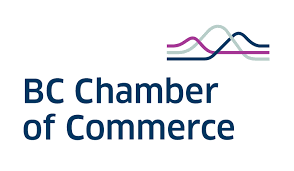Rossland property taxes: steady as she goes...downhill?
The message from City Hall on property taxes this year is one of “steady as she goes.” A recession-style taxation model was adopted by council on Monday night, with tax notices soon to follow.
Five taxation models were presented to council, ranging from ones involving dramatic cuts to staff, services and taxes through to others involving significant increases in services and taxes. Ultimately, the model chosen was the one reccomended by the city’s CAO. This option focusses on maintaining existing services with minimal impacts through cost reductions where possible. The overall taxes collected in 2010 will remain the same as 2009 at $3,516,561.
Breaking down the $3.5 million to be collected, residential class ratepayers will pay $5.8786 per $1,000 in assessed value. Based on an average Rossland home value of $260,000, the average residential homeowner can expect to pay $1528.43 in property taxes in 2010. Business/Commercial class properties will be charged at $10.0524 per $1,000 in assessed value, utility class properties come in at $33.15049 per $1,000 assessed value and non-profit or farm properties will be charged at the same rate as properties in the residential class.
“The key focus of this option is that during economic downtuwn, the operations are tightened to ensure that property taxes do not increase to place an additional financial burden on the taxpayers apart from other financial burdens arising from other levels of governments,” wrote CAO Victor Kumar in his report to council.
While the overall taxes collected in 2010 won’t increase, the city’s financial plan for this year has increased expenditures by $351,163. This increase has not been included in this year’s taxes. A portion of it has been paid by carryovers from last year.
While there will not be sizeable or significant service cuts in this year’s budget, current plans to maintain the property tax base at 2010 levels will result in an increasing impact on the city’s operations and possible service cuts in years to come.
Should service cuts be necessary in subsequent taxation years, they would be seen first at the lower end of the city’s core principles in service prioritization:
Health and Sanitation ( Environment Protection & Sustainability) – This includes waste collection and disposal, sanitary sewer collection and disposal, potable water, cemeteries, animal and pest control, drainag and water run off controls.
Access and Mobility, including streets, sidewalks, snow and ice removal, drainage, pedestrian safety and traffic control.
Safety and Protection, including policing and victim assistance, building safety (fire prevention, control and inspections) legislative functions (Bylaws, building codes and fire codes) planning (access, mobility, safety, infrastructure)
Quality of Life, including recreation, open spaces, parks, trails, play fields, flowers, gardens and environmental enhancement, sustainability and transfers to other groups and agencies.
Kumar notes in his report that potential impacts of this year’s budget on 2011 could include possible reductions in transfers of funds to outside groups and agencies, possible reductions in flowers, parks and recreation, and possible elimination of positions arising from retirements and other job-related consolidations.
For this year, however, services to the public will remain largely the same.

























